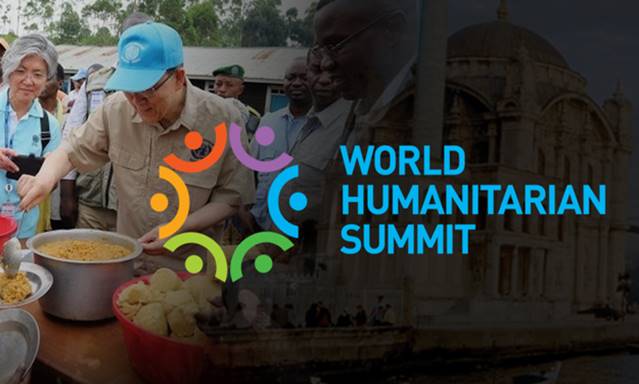The Grand Bargain – one year on

Amid some positive signs, serious shortcomings remain throughout the humanitarian system as it strives to improve the effectiveness, efficiency, and delivery of aid.
This is the sober message to donors and the humanitarian community from our recent OECD-commissioned surveys of affected peoples in Afghanistan, Lebanon, and Haiti as well as feedback from field staff of aid agencies in those countries.
The good news, at least, is that by and large, those affected by crisis – whether refugees, internally displaced persons, or victims of natural disasters – feel relatively safe, respected, and well-treated by aid providers. That said, the survey feedback also suggests that these people, while satisfied with their immediate care, may not be getting the full range of humanitarian assistance available to them for lack of accurate information about aid services in their respective countries.
The survey results also revealed a sharp disconnect between the positive perceptions of field staff working in the three countries and the more pessimistic views of aid recipients when specifically queried about emergency funds reaching those most in need or whether affected people have enough say in how aid programmes are designed and implemented.
In most crises, a sense of empowerment among affected peoples and their ability to participate in decisions that affect them are key to long-term humanitarian solutions. The survey results suggest more attention needs to be paid to this important element of programme management.
Local organisations working with international agencies and NGOs in the three countries also gave high marks to their international partners for cultural sensitivity, respect, and treatment. They were less pleased with financial support, preferring more core funding and greater flexibility in the way funds can be used, particularly in Afghanistan where the cash transfers have become an increasingly important tool of aid. (See Ground Truth Solution’s Cash Barometer project for more information). The biggest gap revealed by the survey of local partners related to capacity building, with local agencies calling for more help with their leadership capacity and other aspects of institutional development.
Ground Truth Solutions will conduct further surveys in Northern Iraq, Uganda, and Somalia before the end of 2017. The plan for 2018 is to return to the same six countries covered this year while adding another six, building towards annual surveys of affected people’s perceptions of all major aid programmes worldwide. The goal is to track progress in improving the quality and effectiveness of humanitarian assistance as set out in the Grand Bargain. We look at it from the perspective of those on the ground who deliver and receive aid and therefore are in the best position to provide useful feedback.
